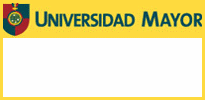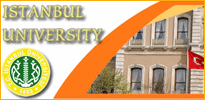Hungary: Hungary Education Profile 2012
2012/03/13
Hungary Education Profile 2012
Higher Education in Hungary
The Hungarian higher education has a long history. The first Hungarian university was founded in Pécs in south Hungary over 600 years ago, in 1367. Hungarian higher education institutions are autonomous, state or non-state (private and religious) institutions recognised by the state. There are 71 higher education institutions in Hungary (18 state universities, 12 state colleges, 7 none state universities and 34 none state colleges).
The Hungarian higher education system
Hungary has been taking part in the Bologna Process since 1999, whose most important goal is the creation of the European Higher Education Area. With the effect of September 1, 2006 the new Bologna regime two-cycle degree system has been introduced. The first degree programmes (3 to 4 years) lead to Baccalaureus / Bachelor’s degrees, while second degree programmes (1 to 2 years) lead to Magister / Master’s degrees. Unified, undivided, long-term Master’s degree programmes (5 to 6 years) are offered in some fields of study, e.g. in human medicine, dentistry, pharmacy, veterinary medicine, architecture, law and in a few programmes of art education. All Bachelor’s and Master’s degrees grant access to the labour market. Based on a Magister / Master’s degree or its foreign equivalent, PhD or Doctor of Liberal Arts (DLA) degrees as third cycle degrees can be awarded after 3 years of study.
In addition to the degree programmes described above, higher education institutions offer non-degree programmes too, such as higher-level vocational trainings, postgraduate specialist training courses based on a first or second degree as well as summer universities and partial trainings in the framework of lifelong learning.
Higher education programmes may be offered in full-time training, part-time training or distance learning courses.
Admission requirements for higher education
According to the Higher Education Act, admission to Bachelor’s degree programmes and unified, undivided, long-term Master’s degree programmes is selective, with the Secondary School Leaving Certificate or its foreign equivalent as a prerequisite for admission with a few exceptions where practical examinations or aptitude tests are also required. The minimum requirement for admission to Master’s degree programmes is a Bachelor’s degree or its equivalent, to PhD and DLA doctoral programmes is a Master’s degree or its equivalent. Higher education institutions may link admission to Master’s and doctoral programmes to additional criteria.
Degrees and Qualifications
The programmes of study offered in foreign languages include medicine, pharmacy, dentistry, engineering, economics, natural sciences, humanities, art and music. One of the strengths of Hungarian higher education lies in its PhD programmes offered in an equally large variety of subjects. The PhD and DLA doctoral degrees granted by Hungarian institutions - just as the Hungarian Bachelor’s and Master’s degrees - can easily get recognised in Europe. The full range of Bachelor’s, Master’s and PhD /DLA degree programmes offered by Hungarian higher education institutions can be found in this publication.
Credit system
The obligatory use of the European Credit Transfer System (ECTS) compatible credit system was introduced in September 2003, but several higher education institutions have already been using it since the middle of the 1990's. One credit corresponds to 30 hours student workload.
Why Hungarian Higher Education?
Hungary has made a substantial contribution to the world’s intellectual heritage. Thirteen Nobel Prize laureates were born Hungarian including acclaimed litterateurs and scientists Philipp E. A. von Lenard, Robert Bárány, Richard A. Zsigmondy, Albert von Szent-Györgyi, George de Hevesy, Georg von Békésy, Eugene P. Wigner, Dennis Gabor, John C. Polanyi, George A. Olah, John C. Harsanyi, Imre Kertész. Other prominent scientists who contributed to the enrichment of human knowledge include Loránd Eötvös, Leó Szilárd, Tódor Kármán and Edward (Ede) Teller. In the world of music mention should be made of Ferenc Liszt, Béla Bartók and Zoltán Kodály. Hungary has served testimony of her high intellectual potential in every walk of life.
And last but not least, Hungarian diplomas have a high prestige throughout the world. The programmes are of high standard with tuition fees quite favourable in international comparison, and the costs of living are much lower than in other countries.
How to apply?
The homepages of institutions that offer programmes in foreign languages contain all the information you need about the conditions of application, together with the necessary application forms. You can choose the most appropriate form of study that suits your profile. You can find out about the conditions of entry into Hungary through the homepages of higher educational institutions or through the web site of the diplomatic missions of the Republic of Hungary (http://www.mfa.gov.hu).
- Hungary News
-
- AFGHANISTAN: UNWTO: International tourism – strongest half-year results since 2010
- HUNGARY: Ombudsman in Hungary criticizes bill on personal data collection
- HUNGARY: Hungary registers trade surplus of 5.4 bln euros in H1 2017
- HUNGARY: Hungary's economy expands 3.2 percent in Q2
- HUNGARY: Hungary recalls its Dutch ambassador following diplomatic clash
- HUNGARY: Putin, Hungarian PM discuss new nuclear power plant
- Trending Articles
-
- EUROPE: Ball Corporation Debuts Three New Aluminium Beverage Can Sizes
- ZAMBIA: Zambia insists on fish import restriction despite deficit
- CHINA: Xi Jinping opens BRICS Summit in Xiamen, asks members to shelve differences
- SOUTH AFRICA: Nigeria and South Africa emerge from recession
- WORLD: How fair is our food? Big companies take reins on sourcing schemes
- NIGERIA: The Security and Exchange Commission approves the 40th Annual General Meeting of Oando PLC













